How to Choose a Profession
Around the time of high school graduation, young adults most often encounter the question of choosing their future profession — exams are coming and they need to urgently find out which direction they need to choose for further learning and a future career. However, the same task might arise among those who have already built a successful career. The choice made in our youth doesn’t always turn out to be the best one and that’s when choosing a profession might become a necessity again.
5-Minute Crafts studied the advice of experts and made a compilation of recommendations that can help you choose your future profession.
1. Make a list of hobbies and interests.
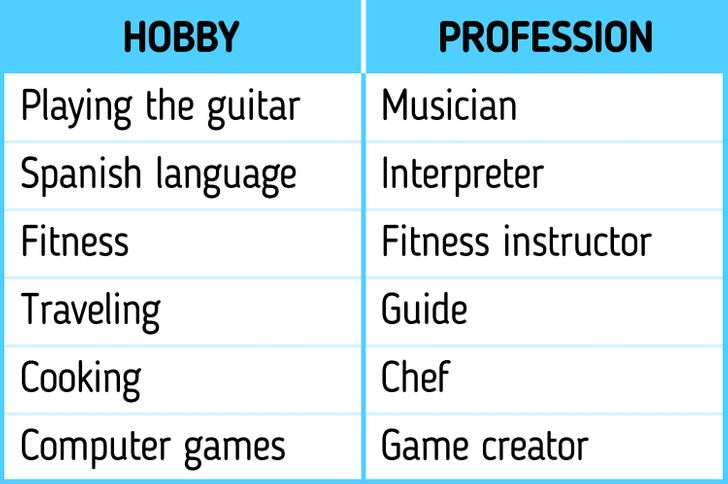
Take a notebook and write down your hobbies, interests, and favorite ways to spend your leisure time. After that, think about the professions that suit them and jot them down on the opposite side. For example, you play the guitar, speak Spanish, and work out regularly, which means that the profession of the musician or guitar playing coach will suit the first point, a linguist, interpreter, or Spanish language teacher will go with the second one, and a fitness instructor will be relatable to the third point.
It’s also worth writing professions that your hobbies are not connected with, but that have been always interesting to you. For example, if you like to watch the House TV series in the evenings and imagine yourself if you were one of the main characters, perhaps you would be interested in the profession of a doctor as well.
2. Take psychological tests.
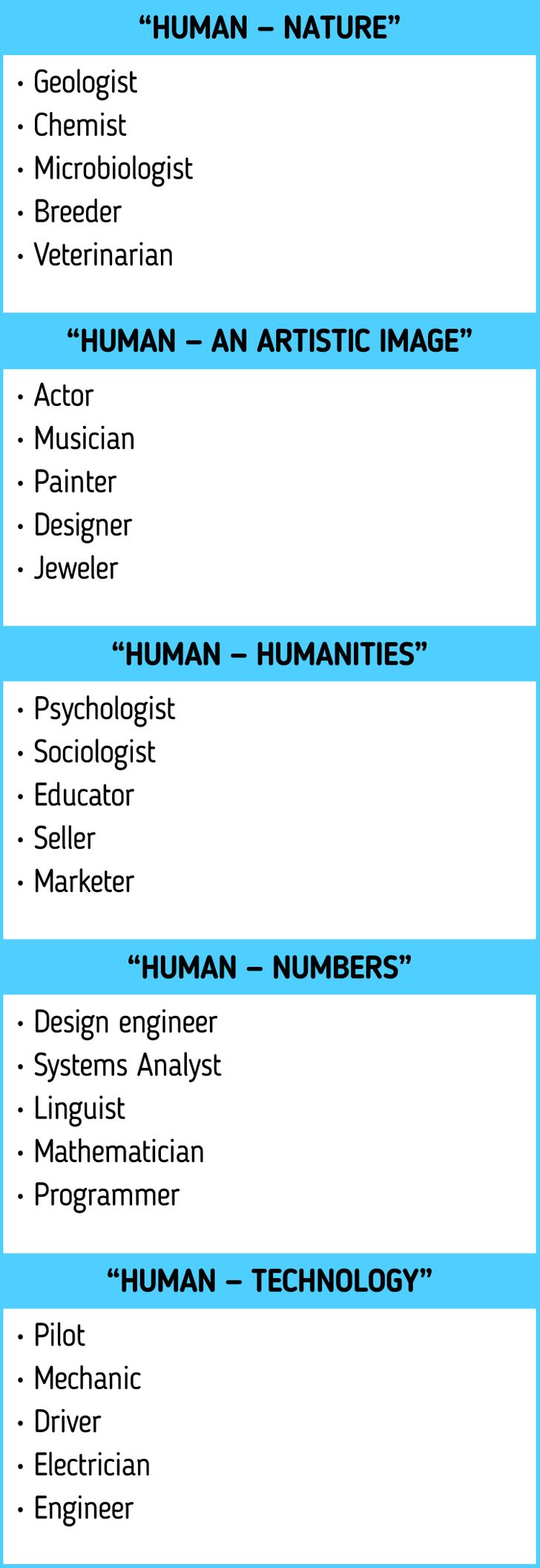
There are numerous psychological tests that can determine the propensity for certain professions. One of the more popular ones is the vocational guidance test by Klimov E.A. He divides all existing professions into 5 types:
- “Human — nature” seeks to work with nature, animals, phenomena, and various biological processes.
-
“Human — an artistic image” combines various types of art.
-
“Human — humanities” is the one whose work is connected with communication and the object is other humans and society in general.
-
“Human — numbers” work with various types of programming languages, drawings, maps, codes, and other conventional signs.
-
“Human — technology” works with physical and mechanical processes, machines, apparatus, technical systems, and equipment.
During the test, you’ll need to answer 20 questions. The result will be an individual propensity for each type of profession, shown as a percentage.
Besides Klimov’s methodology, things like Holland’s MnCareers Interest Assessment and Golomshtok’s Map of Interests are popular too.
3. Listen to interviews and podcasts.
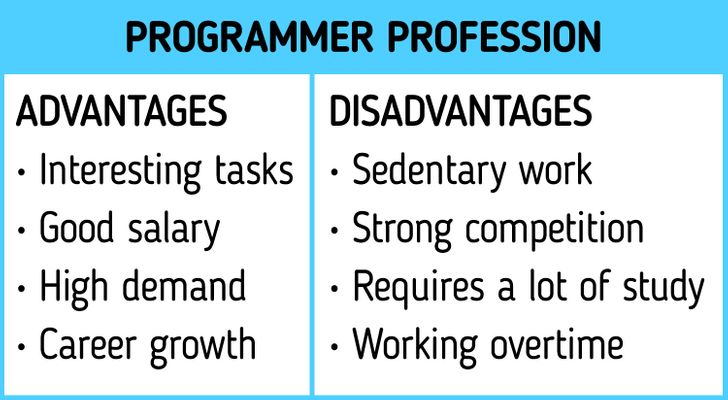
Search for videos and podcasts that review various professions on the Internet. As a rule, this is an interview where a person talks about the nuances of their work and shares what they like and dislike in their chosen profession.
You can listen to the reviews about all professions or only about the ones that are there on your personal list. Make some notes as you listen to them: which professions did you like, which ones did you dislike, what attracted you to the professions that you liked, and what scared you off from the ones you disliked. Here is an approximate list of what you should pay attention to:
- Work tasks — how interesting they are to you.
-
Demand — how often specialists in this field are looked for.
-
Salary — whether it meets your requirements.
-
Working schedule— working hours, the presence of night shifts, an opportunity to work remotely.
-
Duration and cost of learning.
-
Career growth and the opportunity to be promoted.
-
The presence or absence of business trips.
4. Try becoming a specialist for one day.
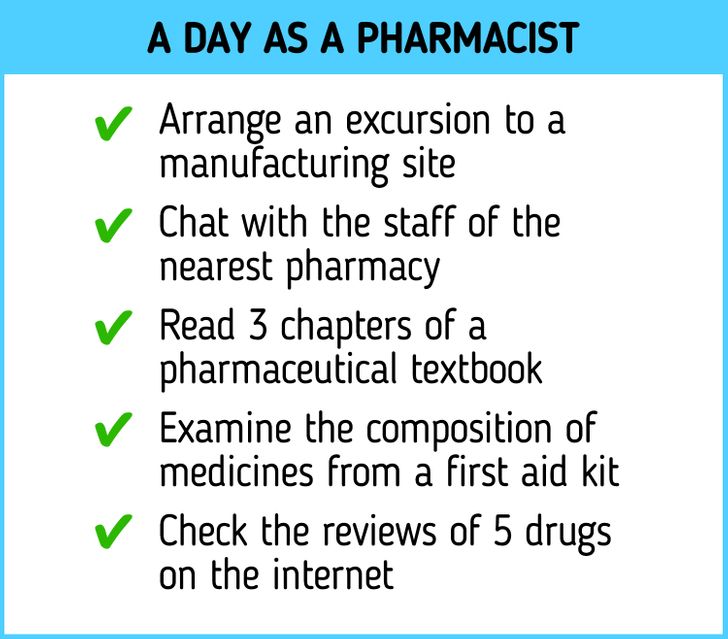
After analyzing your interests and listening to interviews and podcasts, make a short-list of the professions you liked the most. Study them carefully by allotting 1-2 days for each occupation.
For example, if you liked the profession of a pharmacist, you need to first find out whether there is a pharmaceutical factory in your city. Call them and figure out whether there is an opportunity to go on a tour of their production area or to communicate with their employees. If this option is too extreme for you, you can just try the theoretical part.
Find a textbook on pharmaceuticals and read several chapters, find out the composition of all medicines from your home medicine cabinet, and look at topical reviews of drugs on the internet. If during this day you don’t lose interest in the profession, it may be worth giving your choice a chance.
5. Plan your training for a new profession.
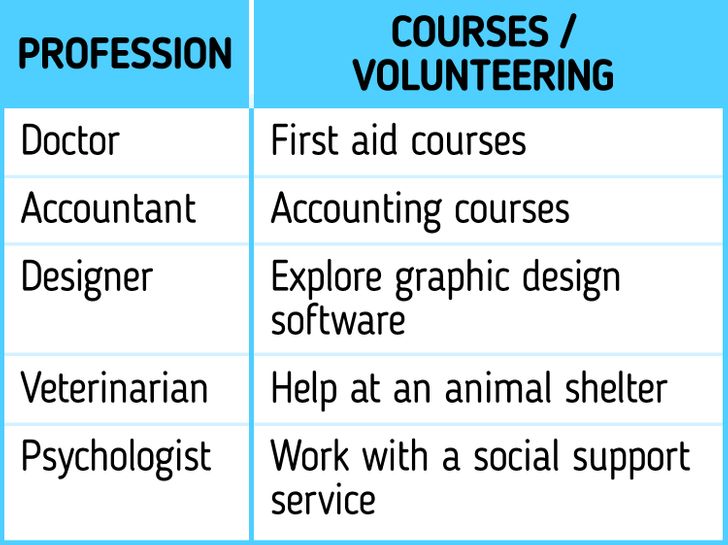
Once you understand what profession you like, find out the requirements it has for its future specialists and plan your studies accordingly. In order to make sure that you made the right choice, start with short-term courses if possible.
For example, a future doctor can take first aid courses before going to college, an accountant can sign up for accounting courses, a designer might take courses that teach them how to work with graphic design software, and a jeweler might take a master-class on how to create certain types of jewelry.
Volunteering in an interesting sphere might be another option. A future historian might help potential colleagues at an excavation site, a vet could work in a shelter for homeless animals, or a psychologist could offer their help at a social support service.
6. Don’t be afraid to start from the beginning.
If, after some time, you realize that you made a wrong choice, don’t be afraid to try yourself in a different profession. After 5-10 years, it will be more difficult to do this and the sooner you shift to another option, the more time you will save.
Changing your opinion during the study or work process is totally normal. At the outset of the quest, we have very little information when it comes to making a decision and we get more of it while learning the profession, which can eventually make us change our mind. In this case, you need to analyze what made you change your decision and what nuances you need to take into account to not be mistaken again.